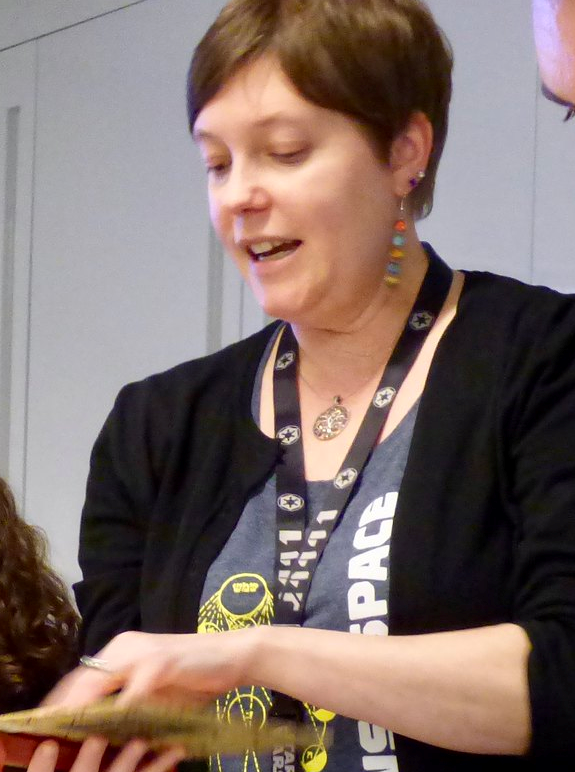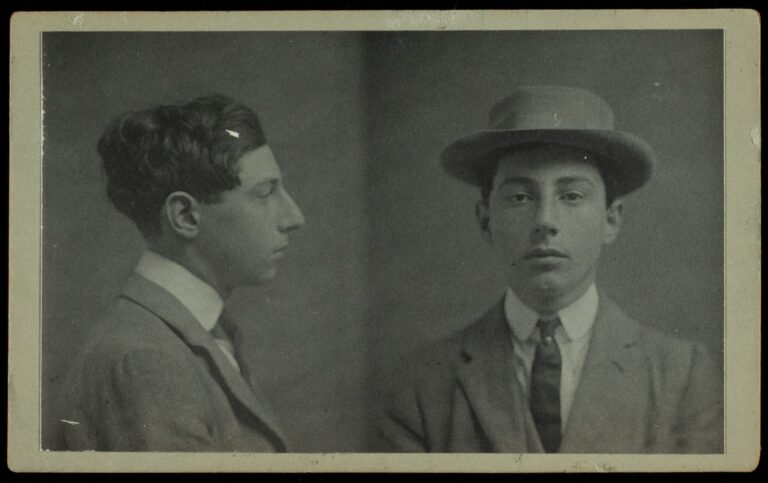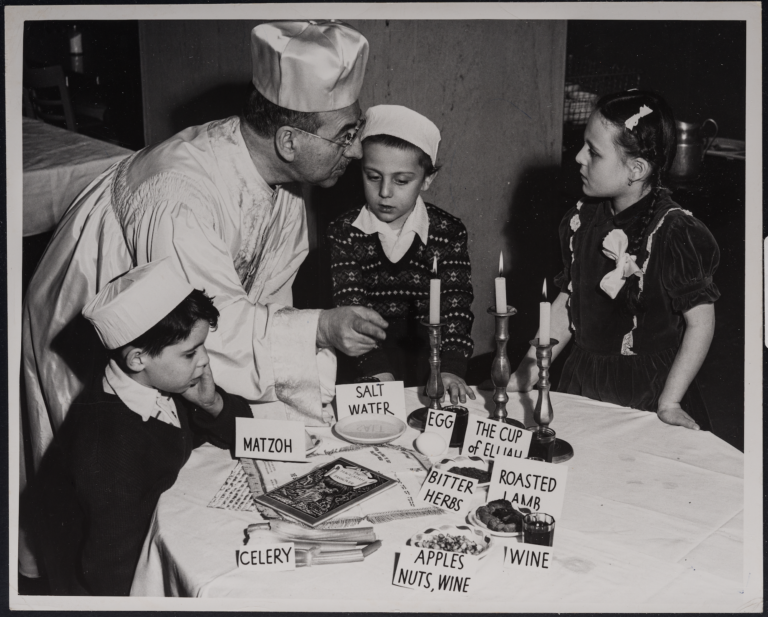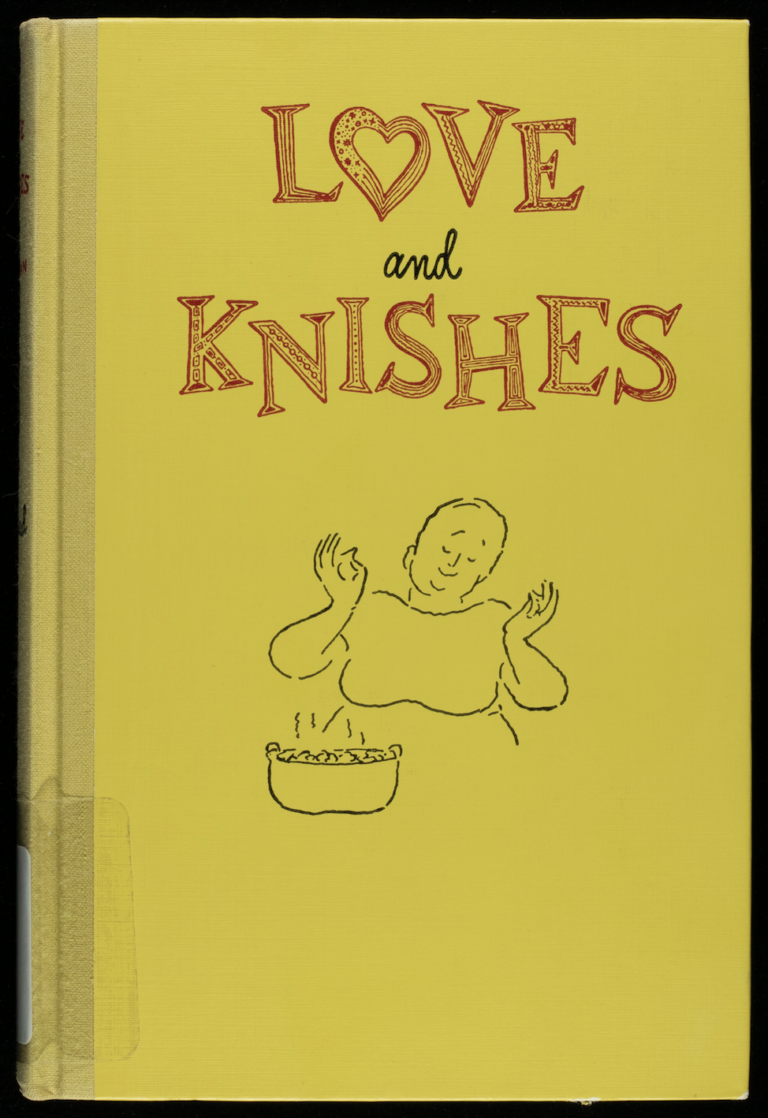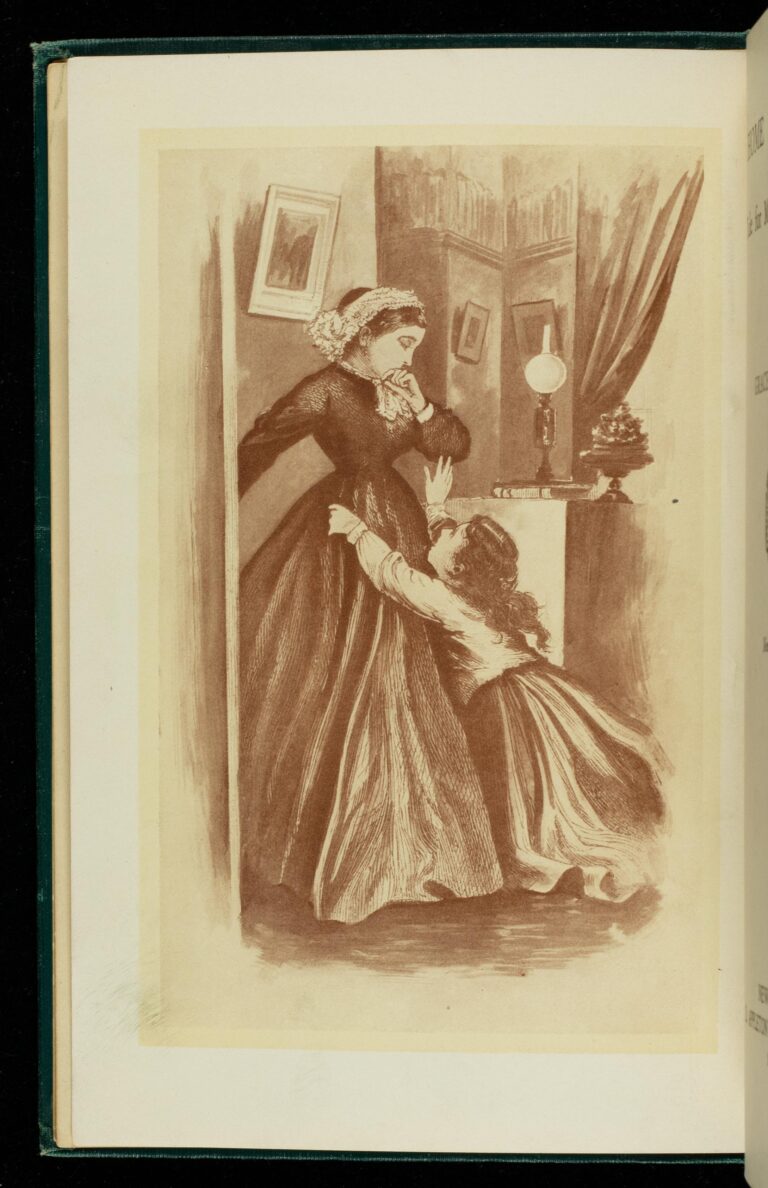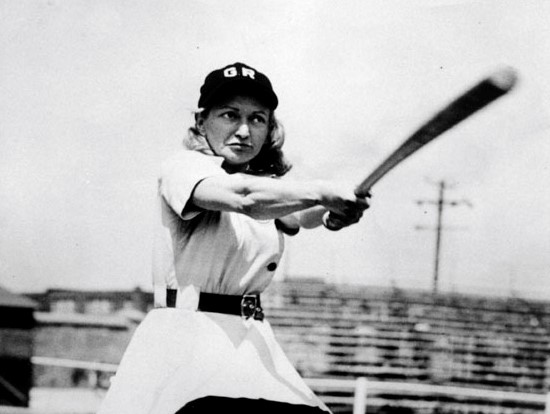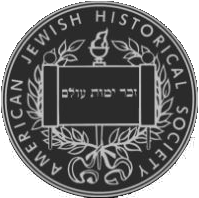The AJHS library collection comprises over 50,000 books and periodicals representing different aspects of American Jewish life, containing rare books such as the first Jewish cookbook published in America, and a wealth of other lovely items. But some of the most interesting and thought-provoking items are not always found in the hallowed rare book collection, but in the collection of more recent materials, which often show how larger societal shifts manifest in the American Jewish community. Role Playing: A Creative Technique in Parent Education by Augusta Saretsky is exactly one of these items, which provides a fascinating window at how ideas about family, parenting, and community were changing across America in the 1950’s and 1960’s, and what the American Jewish perspective was on these rapid societal evolutions.
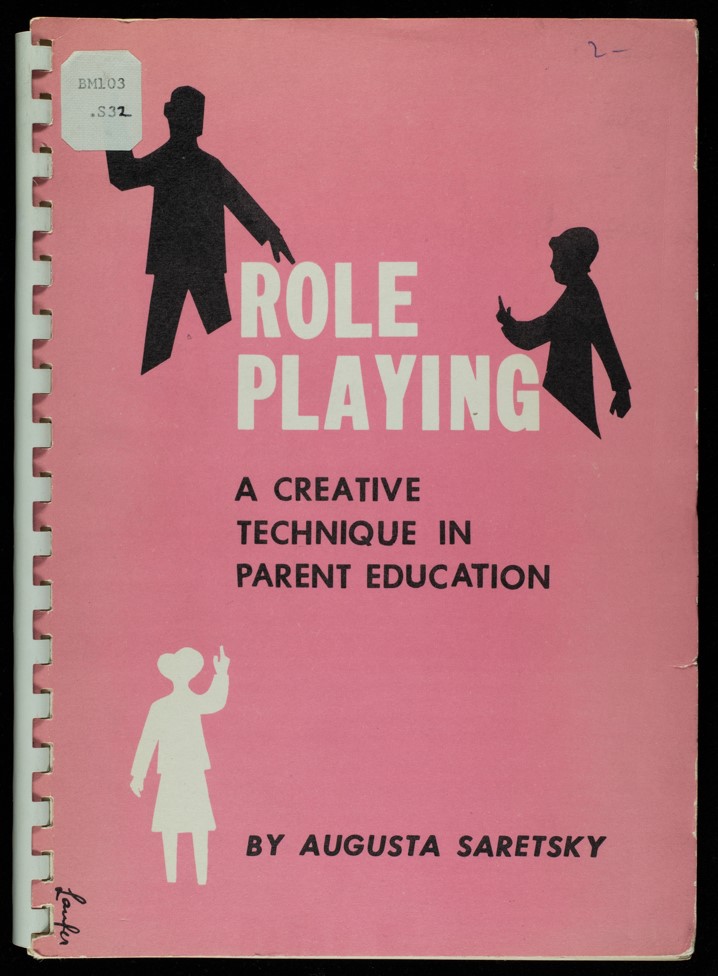
According to the American Psychological Association and their glossary of terms, role playing is, “a technique used in human relations training and psychotherapy in which participants act out various social roles in dramatic situations. Originally developed in psychodrama, role play is now widely used in industrial, educational, and clinical settings for purposes such as teaching employees to handle sales problems, helping change attitudes and relationships among couples or family members, and rehearsing different ways of coping with stresses and conflicts.” The technique was developed in the 1930’s by Jacob Moreno, a therapist who had been working on therapeutic approaches utilizing psychodrama; he felt that the improvisational style of acting would be a fruitful approach for individuals to work out their conflicts and resolve emotional issues. As attitudes about therapy and mental health evolved, concepts such as role playing to resolve conflict worked their way into the American vernacular, and inclusion in self-help and parenting books.
Written in 1965 and published by the Jewish Education Council, this unassuming, spiral bound publication articulates how to use the psychotherapeutic technique of role playing in order to improve parental communication skills. The book provides pre-written scripts for parents to role-play difficult conversations with each other, with additional questions for discussion afterwards. But it’s the topics of the scripts that provide perspective on the larger currents in American Jewish life; these topics reveal debates about levels of appropriate religious observance (“Sabbath Service Observance”); affluence, and keeping up with the neighbors (“A Posh Bar Mitzvah”); and how to navigate identity around holidays (“The Hanukkah-Christmas Dilemma”). The book was written by Augusta Saretsky, who was deeply involved with children’s education though the Council and other publications, and the author was advised by Dr. Azriel Eisenberg, the former president of Gratz College who wrote extensively on Jewish education. An additional advisor was Dr. Samuel Citron, whose archival papers are housed at AJHS (collection P-930); Citron was originally a lawyer, who later switched careers to focus on education and drama. He encouraged young people to learn about Jewish culture and history; he not only founded The Jewish Theatre for Children, but he also incorporated this cultural heritage information into his plays written for children. Examples of his plays can be found in his archival collection, as well as additional information about Jewish education in the 1950’s-1970’s.
This item, and so many others like it, are wonderful examples of how material culture studies and a closer examination of these types of items can furnish us with a fascinating and multi-layered window into how individuals navigated important issues in decades past and provides these perspectives for historians (and librarians) to read and reflect upon.

